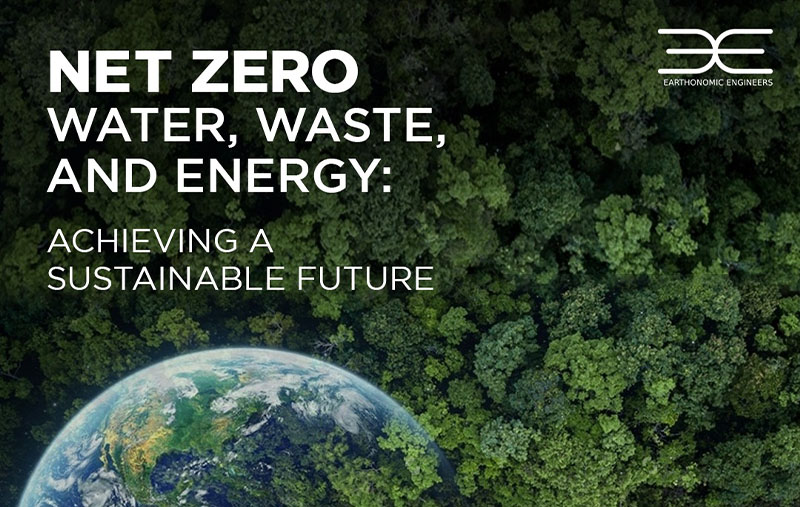Achieving a Sustainable Future
Net Zero Water, Waste, and Energy: Achieving a Sustainable Future
15th June 2023

The world is facing a number of challenges, including climate change, water scarcity, and waste management. These challenges are interconnected, and they all require us to rethink our relationship with the planet.
One way to address these challenges is to achieve net zero water, waste, and energy. Net zero water means using only as much water as is available on-site, while net zero waste means eliminating the disposal of waste to landfills and incinerators. Net zero energy means producing as much energy on-site as is used over the course of a year.
Achieving net zero water, waste, and energy is a complex challenge, but it is one that is essential to creating a more sustainable future. By working together, we can create a world where everyone has access to clean water, waste is managed responsibly, and energy is produced in a way that does not harm the environment.
Net Zero Water
Net zero water can be achieved through a variety of methods, including:
Net Zero Waste
Net zero waste can be achieved through a variety of methods, including:
Net Zero Energy
Net zero energy can be achieved through a variety of methods, including:
Benefits of Net Zero Water, Waste, and Energy
Achieving net zero water, waste, and energy has a number of benefits, including:
How to Achieve Net Zero Water, Waste, and Energy
Achieving net zero water, waste, and energy is a complex challenge, but there are a number of things that can be done to make progress. Here are a few ideas:
The Indian Green Building Council (IGBC) has developed rating systems that focus on achieving net zero energy, water, and waste in buildings. These systems provide guidelines for developers and building owners to reduce their environmental impact and save on energy and water costs.
The IGBC Net Zero Energy Buildings Rating System is a voluntary program that recognizes buildings producing the same amount of energy they consume annually. To achieve net zero energy status, buildings must meet stringent energy efficiency requirements and generate all their energy from renewable sources like solar panels or wind turbines.
Similarly, the IGBC Net Zero Water Buildings Rating System concentrates on water consumption. Buildings aiming for net zero water status must meet rigorous water efficiency standards and fulfill their water needs through renewable sources like rainwater harvesting or greywater recycling.
Moreover, the IGBC Net Zero Waste Buildings Rating System helps in waste reduction. Buildings targeting net zero waste status must comply with strict waste management guidelines and divert all waste away from landfills.
Implementing the IGBC Net Zero Rating Systems yields several benefits:
Incorporating the IGBC Net Zero Rating Systems into building design and construction presents an opportunity to significantly reduce environmental impact, improve resource efficiency, and create healthier living and working environments.
By implementing the measures outlined in the rating systems, buildings can contribute to mitigating climate change, conserving resources, and fostering a more sustainable future.
Conclusion
Achieving net zero water, waste, and energy is a complex challenge, but it is one that is essential to creating a more sustainable future. By working together, we can create a world where everyone has access to clean water, waste is managed responsibly, and energy is produced in a way that does not harm the environment.
RECOMMENDED

Jali, a traditional architectural element renowned for its beauty and functionality, has evolved...

Green audits are essential tools that provide a comprehensive assessment of an organization's environmental...

Daylighting is a strategic element in sustainable architecture, essential for reducing energy consumption and enhancing...